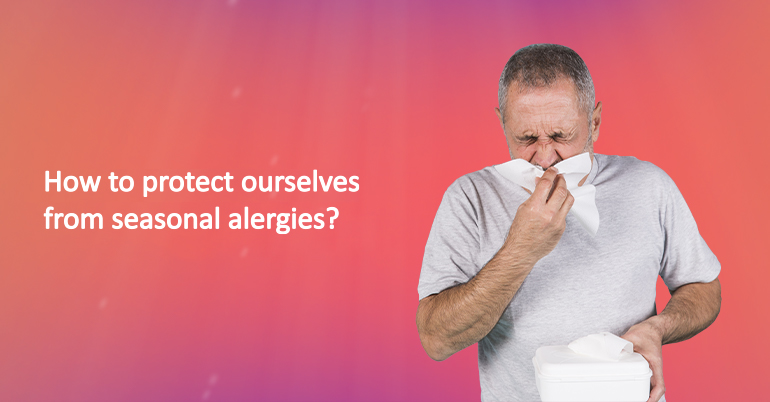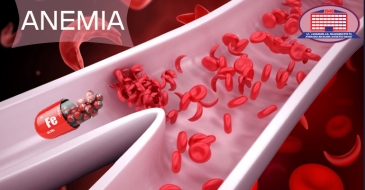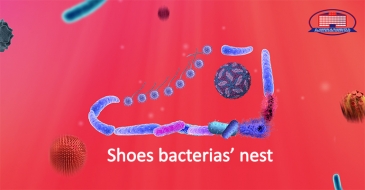- This is interesting
- Health and Lifestye
-
Helpful Advice
- Gastroenterologist advises
- Toxicologist advises
- The traumatologist advises
- therapist advises
- Rheumatologist advices
- Gynecologist advises
- Allergist advises
- Proctologist advises
- Neonatologist advises
- Neurologist advises!
- Hematologist advises
- Oto-rhino-laryngologist advises
- Epidemiologist Advises
- Ophthalmologist Advises
- Obstetrician-gynecologist Advises
- Endocrinologist Advises
- Cardiologist Advises
- Nutrition

Allergy in a contemporary understanding is an anomaly of immune, defense mechanism. Allergen is a substance that causes allergic reaction.
Immunity is an indicator of protection or durability against a disease, whereas allergy is an immune reaction that is followed by damage of tissues. Inflammatory hyperemia, swelling, bronchospasm, skin itchiness and shock develops and manifests with various reactions.
Allergic diseases are following: drug allergy, food allergy, anaphylactic shock, serum sickness, hives and Milton’s disease, contact dermatitis, exudative erythema multiforme, latex allergy, insect allergy, autoallergy, allergic disease of lungs, pollen allergy, atopic dermatitis, allergic contact dermatitis.
National Center of Surgery’s allergist, Tina Muradashvili discusses it with us.
Several golden advices from National Center of Surgery’s allergist:
- It is recommended for the allergic person to replace furniture’s soft fabric with leather and frequently air the bed.
- Air the room early in the morning or later in the evening, because at noon there’s a dust outside;
- It’s necessary to sterilize windows and doors with wet cleaning rules.
- Acute allergic reaction is preferable to treat with dietotherapy. Do not consume bitter, sour, fried, tomato or fish products;
- Maximally limit following products in your nutrition: nuts, carrots, orange, sunflower seeds, mayonnaise, musterd, khalva, chips, hamburger, sweets and soda bevrages – all the products that contain food preservatives.
- Following products are considered to be heavy allergic food: strawberry, tomato, coffee, chocolate, fish and orange.
- It’s preferable to consume porridge, macaroni, vermicelli, soup, mashed potatoe and boiled meat;
- It’s recommend to consume water, mineral water and tea in high quantity. No juice! Only dried fruit, quince or apple’s stewed beverage (kompot).
- Restrain yourselves from exercising, walking in a windy weather.
- Avoid places with many trees and plants.
- Avoid hiking in sunny days.
- Utilize sunglasses;
- Cover the nose with moistened handkerchief;
- Utilize respirator or protective face masks, when working in garden.
- People with allergy risk avoid places with lots of insects. Say no to cosmetics, because its fragrance attracts insects.
- Don’t wear sharp colored clothes;
- If you ever had an allergic reaction on any medication, make a note and inform your doctor during your visit.
- Do not wear synthetic and woolen clothes on a bare skin. Wear cotton fabric clothes.
- It’s preferable to spend your time in moderate climate environment. Severe coldness and hotness are not recommended.
- Wash new clothes before you wear them.
- Do not walk barefoot on grass.
- Frequently, air, winnow and vacuum clean blanket, mattress and pillow.
- It’s not preferable to have a book, carpet or soft bed cover in your bedroom.
- Allergic people should avoid visiting zoos, animal shelters or pet shops;
- It’s necessary to change air conditioner filter and regularly check up on it;
- During pollen period, spend more time indoors;
- Wash your eyes with cool water.
National Center of Surgery address: Tbilisi, Dighomi, Chachava N7..
You may contact National Center of Surgery’s call center at 577 119 119 or 2 02 25 25..
In case of any issues, you may contact National Center of Surgery’s allergistTina Muradashvili for consultation at 577 11 86 43 or 599 14 45 87. .
Wish you health!










